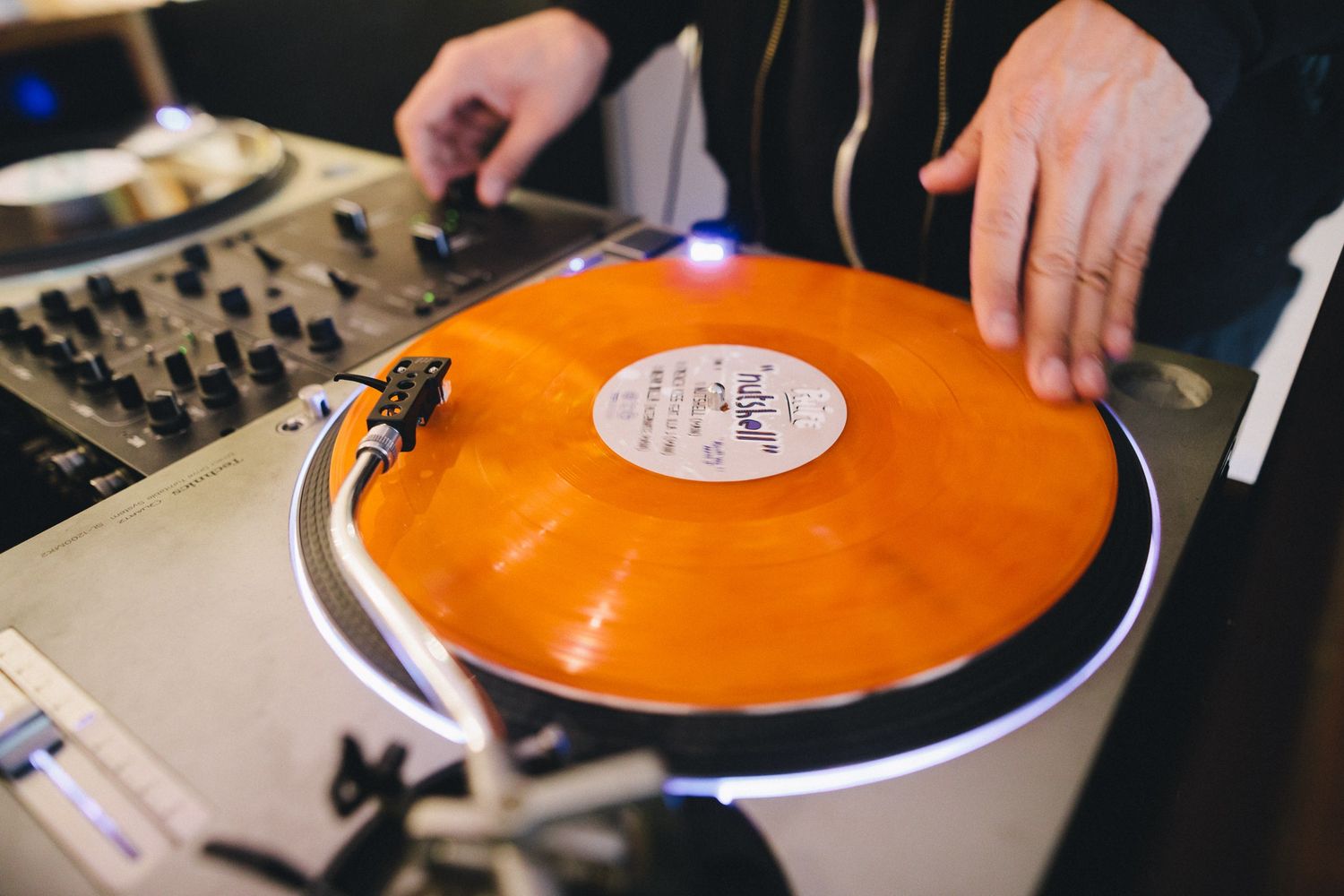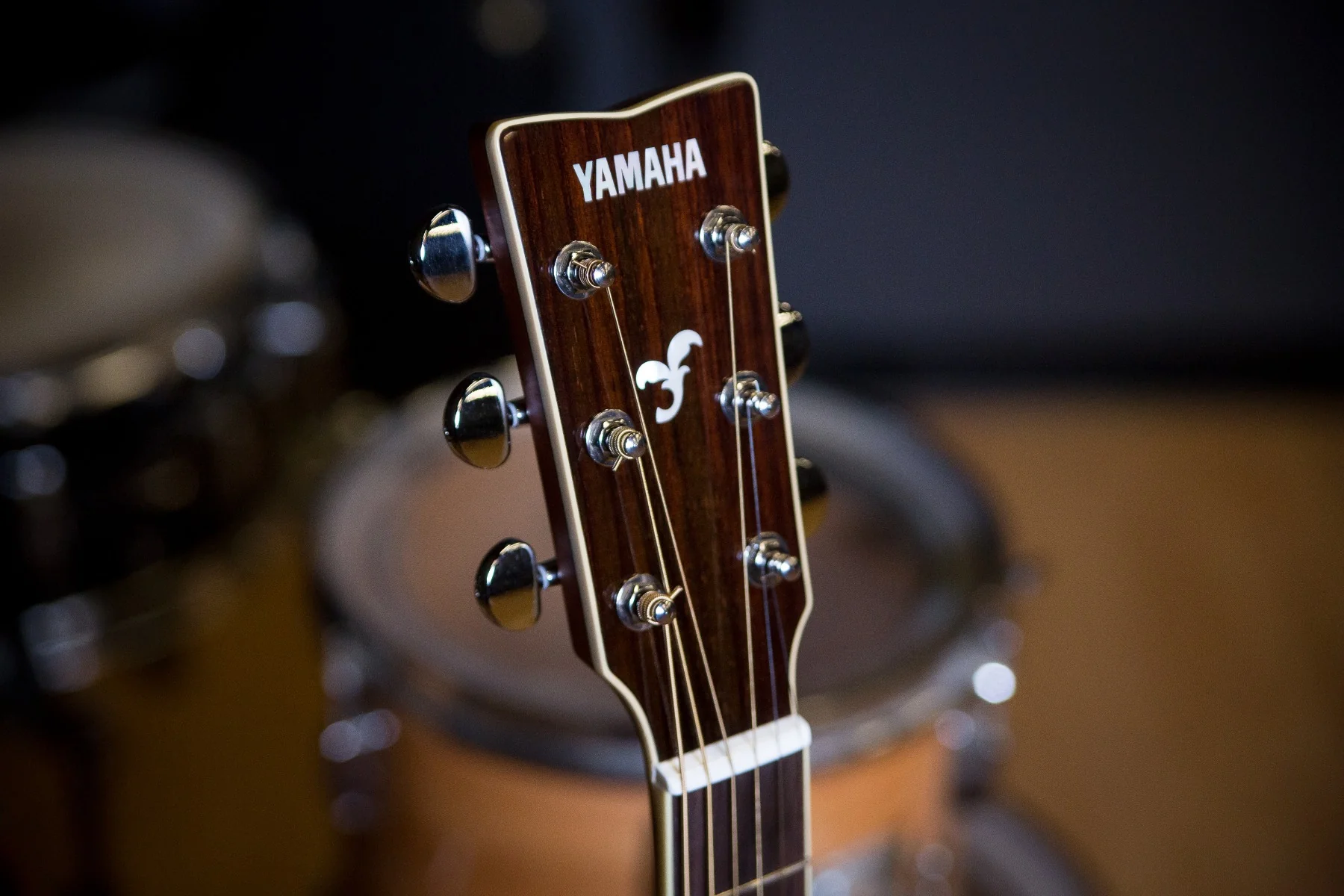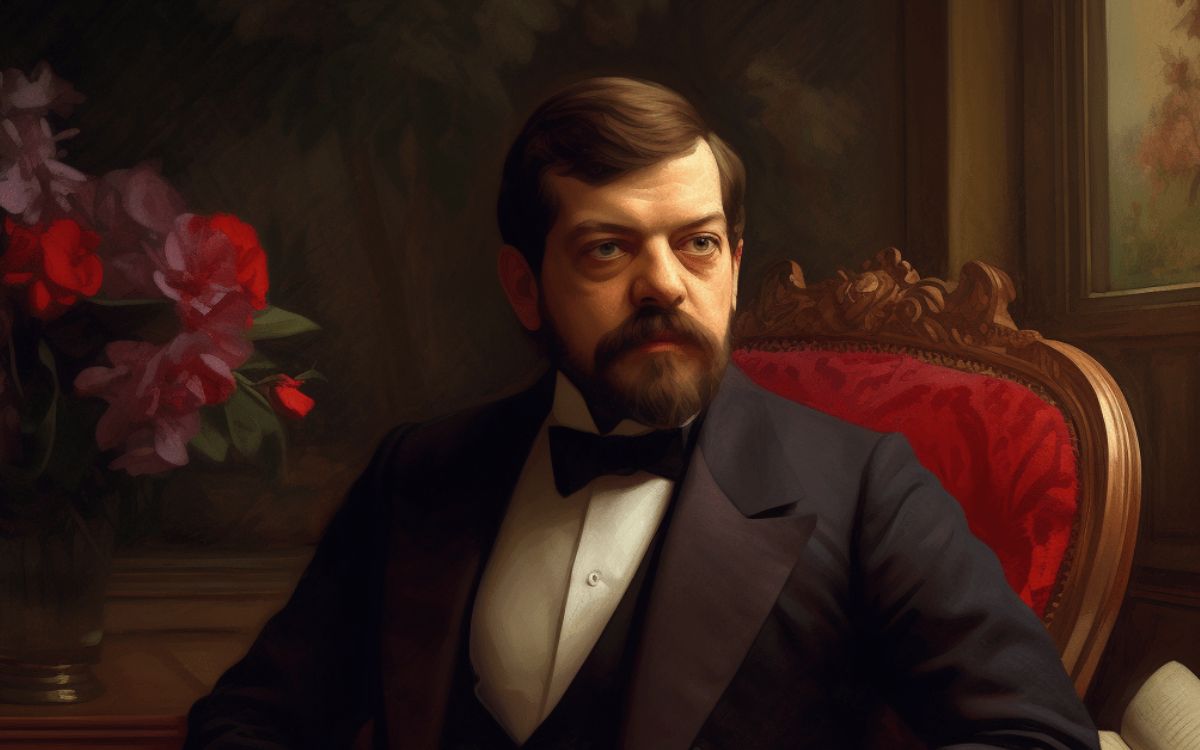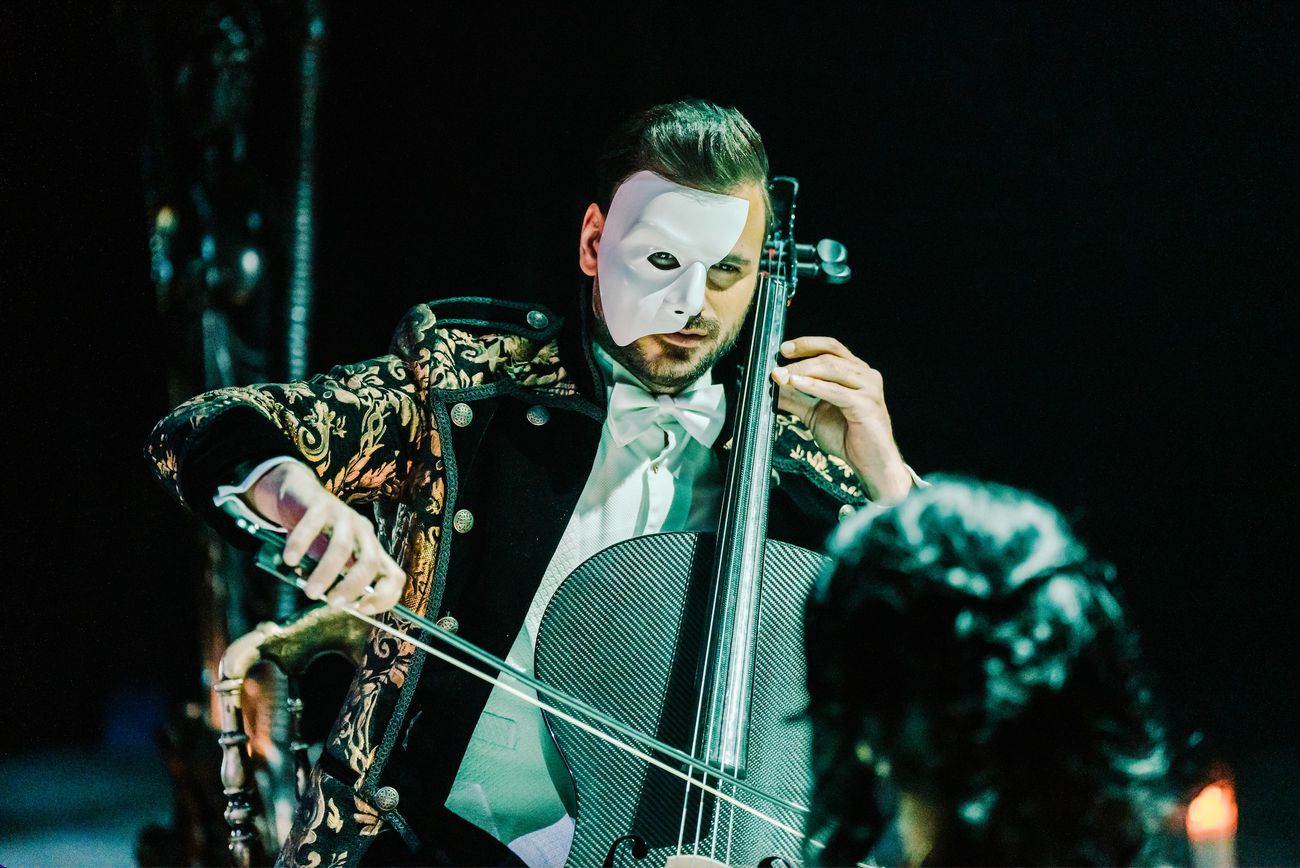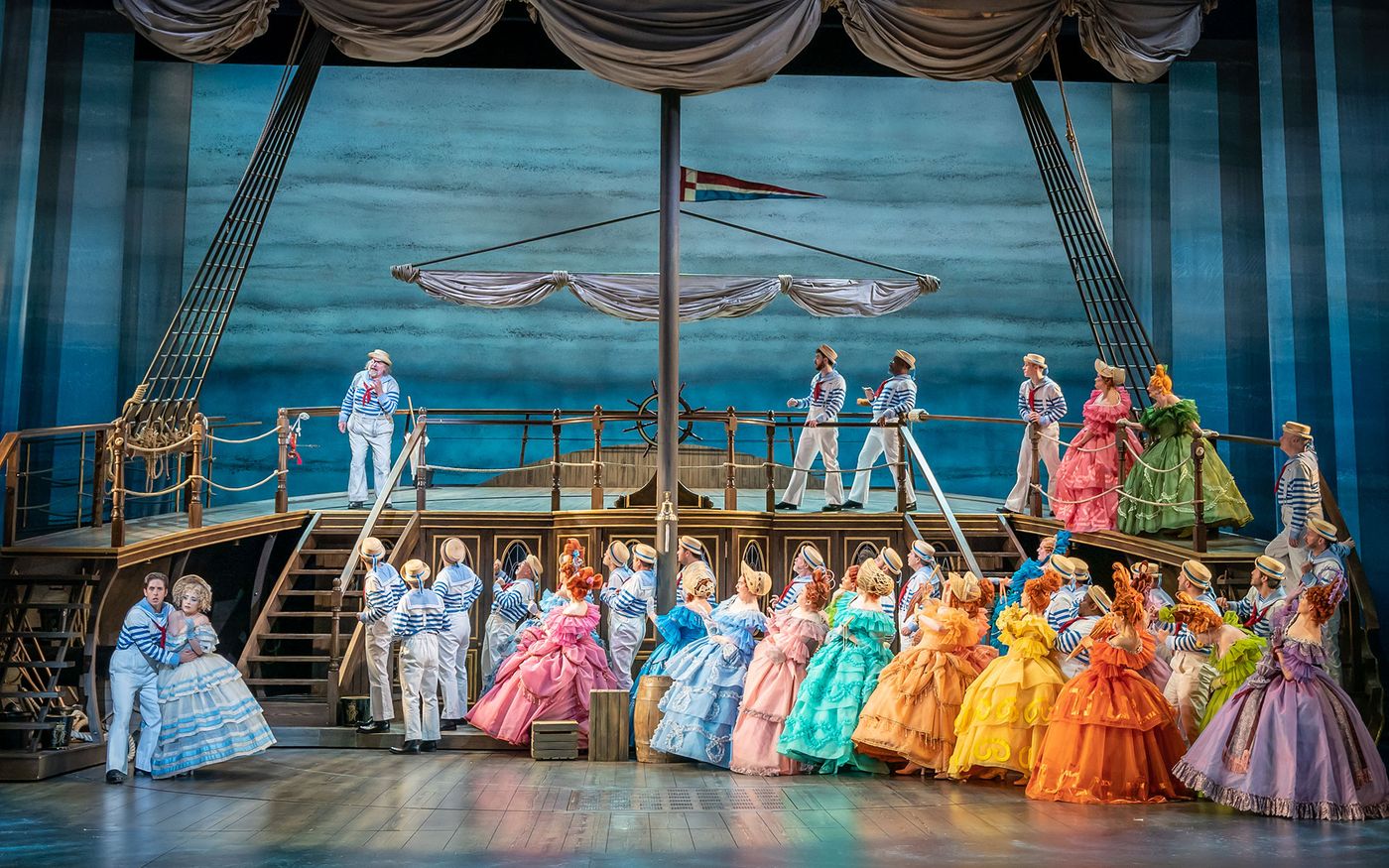Home>Events & Info>Opera>Which Phrase Best Describes Opera Seria?
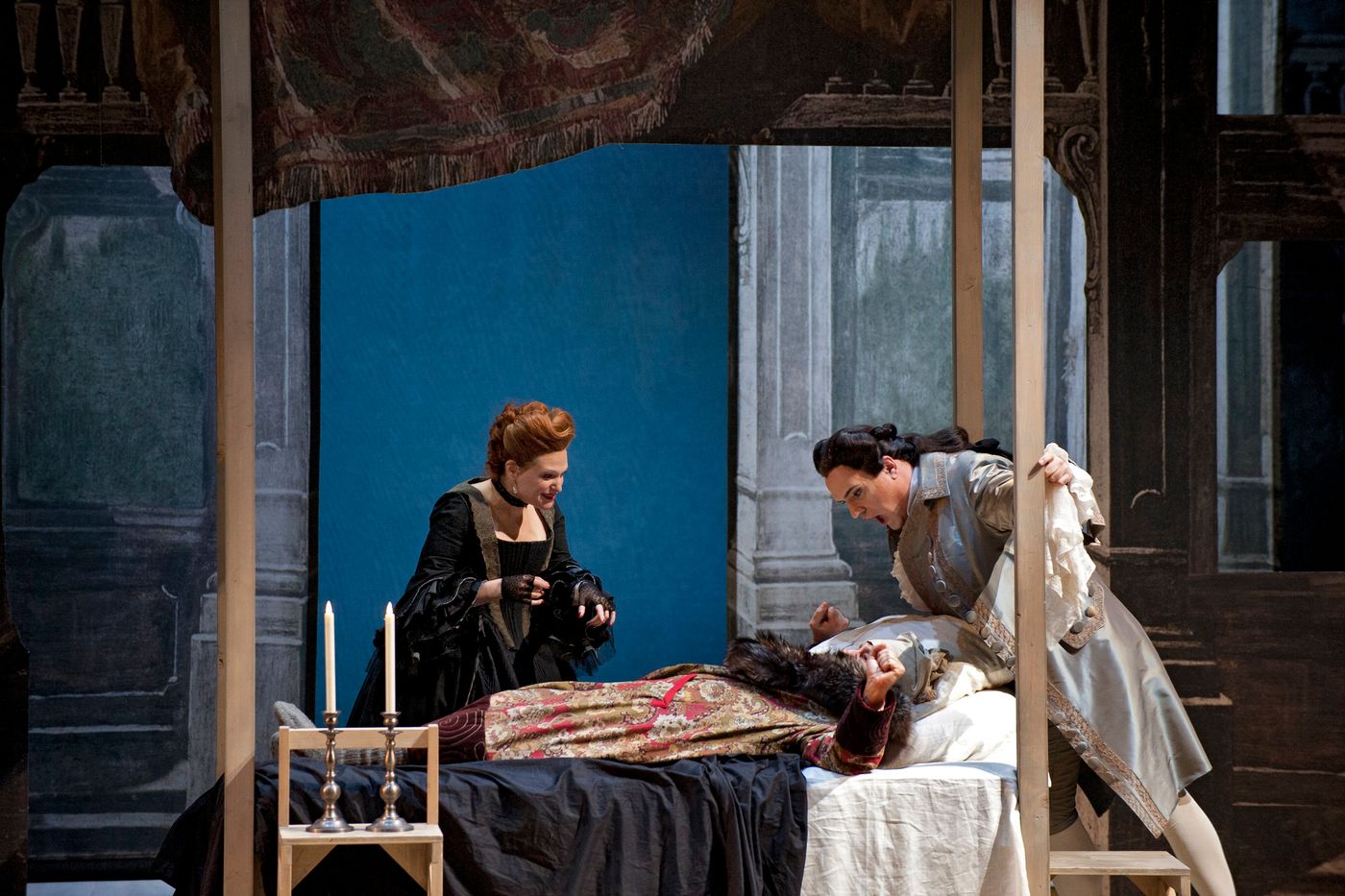

Opera
Which Phrase Best Describes Opera Seria?
Modified: January 22, 2024
Discover the essence of Opera with Opera Seria - the classical form that showcases the grandeur, drama, and intricate vocal performances that define this thrilling art form.
(Many of the links in this article redirect to a specific reviewed product. Your purchase of these products through affiliate links helps to generate commission for AudioLover.com, at no extra cost. Learn more)
Table of Contents
Introduction
Opera Seria, which translates to “serious opera” in Italian, is a genre of opera that emerged in the 18th century. It was a popular form of musical theater that focused on serious and tragic subjects, often based on historical or mythological events. Opera Seria was characterized by its elaborate storytelling, dramatic performances, and powerful music.
Unlike its counterpart, Opera Buffa (comic opera), Opera Seria placed a greater emphasis on noble characters and serious themes. It showcased the passions, conflicts, and emotions of the characters through powerful arias, accompanied by a full orchestra. This genre was viewed as a grand form of entertainment, often favored by the aristocratic elite.
Opera Seria had a distinct structure, consisting of recitatives, arias, and ensembles. The recitatives were mainly used for dialogue, while the arias allowed the characters to express their innermost thoughts and emotions. The ensembles, such as duets or choruses, added depth and complexity to the storytelling.
Opera Seria also featured highly skilled singers, known as castrati, who were male singers castrated before puberty to preserve their high vocal range. These singers were highly revered and were often the stars of the production. Their powerful voices and emotional delivery added an extra layer of intensity to the performances.
In the next sections of this article, we will delve deeper into the specific characteristics of Opera Seria, the dramatic elements it encompassed, the role of music in enhancing the storytelling, notable examples of Opera Seria compositions, and the eventual decline of this genre as it gave way to newer forms of opera.
Definition of Opera Seria
Opera Seria, also known as “serious opera,” is a genre of opera that emerged in the 18th century during the Baroque period. It is characterized by its serious and dramatic themes, complex storytelling, and powerful music. Unlike Opera Buffa, which focuses on comedic and lighthearted subjects, Opera Seria delves into tragic and noble narratives.
At its core, Opera Seria aims to evoke strong emotions in the audience through intense portrayals of human struggles and conflicts. The stories often revolve around historical events, mythological tales, or romantic dramas. The opera’s libretto, or text, is written in a poetic and eloquent manner, emphasizing the grandeur and solemnity of the themes.
One of the defining features of Opera Seria is its structure, which typically consists of recitatives, arias, and ensembles. Recitatives serve as the dialogue sections, advancing the plot and providing necessary exposition. They are often accompanied by a simple basso continuo, a gentle supporting harmony.
The arias are the heart of Opera Seria. They allow the characters to express their deepest thoughts, emotions, and desires in a more elaborate and expressive musical form. Aria melodies are often complex and ornamented, showcasing the virtuosity of the singer. They provide opportunities for vocalists to display their vocal range, agility, and dramatic flair.
Ensembles, such as duets, trios, or choruses, are also frequent in Opera Seria. These sections bring multiple characters together, creating powerful harmonies and interactions. Ensembles add depth and complexity to the storytelling, portraying intricate relationships and escalating conflicts.
Opera Seria heavily relies on skilled singers to bring its narratives to life. During its heyday, castrati, male singers who were castrated before puberty to preserve their high vocal range, became stars of the genre. Their powerful, otherworldly voices and dramatic performances captivated audiences and added an extraordinary dimension to the music.
Overall, Opera Seria is a genre that seeks to engage the audience on an emotional and intellectual level. It combines exquisite music with rich storytelling, exploring the depths of human emotions and showcasing the power of the human voice. It was a significant and influential form of opera during the 18th century, shaping the development of the art form and leaving a lasting legacy in the world of classical music.
Characteristics of Opera Seria
Opera Seria, as a genre, is characterized by several distinct features that set it apart from other forms of opera. These characteristics contribute to the emotional intensity and grandeur that define Opera Seria performances. Let’s explore some of the key elements that define this genre.
Noble Characters: Opera Seria often revolves around noble and heroic characters. The protagonists are depicted as morally strong individuals who face challenges and conflicts with courage and dignity. Their struggles and triumphs form the core of the narrative, resonating with the audience’s sense of virtue and aspiration.
Dramatic Storytelling: Opera Seria delves into serious and tragic themes. The stories are centered around historical events, myths, or romantic dramas. The librettos are written in a poetic and eloquent style, emphasizing the gravity of the narrative. The plot often follows a linear structure, showcasing the rise and fall of the protagonists.
Vocal Virtuosity: Opera Seria puts a strong emphasis on the vocal abilities of the performers. Aria melodies are often complex and ornamented, providing a platform for singers to showcase their technical skills, agility, and range. The arias are emotionally charged, allowing the characters to express their innermost thoughts and feelings.
Dramatic Recitatives: Recitatives in Opera Seria serve as the dialogue sections, advancing the plot and providing necessary exposition. These passages are typically accompanied by a basso continuo, a simple harmonic framework. The recitatives contribute to the dramatic tension by conveying the characters’ spoken words with emotional inflection and rhythmic variation.
Elaborate Costumes and Staging: Opera Seria productions often feature lavish costumes and sets. The visual aspects of the performance aim to immerse the audience in the world of the opera, creating a sense of opulence and grandeur. The sets portray the appropriate historical or mythological setting, enhancing the overall theatrical experience.
Powerful Orchestration: The music in Opera Seria is orchestrated to complement the emotional impact of the storytelling. The orchestra plays a prominent role in setting the mood, intensifying the dramatic moments, and capturing the essence of the characters and events. The use of brass, strings, and percussion instruments adds depth and richness to the musical composition.
Overall, Opera Seria embodies a sense of nobility, emotional depth, and musical virtuosity. It showcases the power of the human voice, taking the audience on a journey of passion, conflict, and catharsis. These distinct characteristics continue to shape our understanding and appreciation of this captivating genre of opera.
Dramatic Elements in Opera Seria
Opera Seria is known for its dramatic intensity and emotional impact. The genre incorporates several key elements that enhance the theatrical experience and engage the audience on an emotional level. Let’s explore the dramatic elements that make Opera Seria such a compelling form of opera.
Powerful Aria Performances: Aria performances are a central element of Opera Seria, allowing characters to express their deepest emotions through music. These solo pieces are often virtuosic, showcasing the technical prowess and vocal range of the singers. Aria performances serve as the emotional highlight of the opera, intensifying the dramatic impact of the narrative.
Emotional Storylines: Opera Seria focuses on tragic and noble subjects, exploring themes of love, honor, betrayal, and sacrifice. The stories often revolve around historically significant events or mythological tales. These emotionally charged narratives captivate the audience, immersing them in the characters’ struggles and evoking empathy and catharsis.
Conflict and Contrasting Characters: Opera Seria utilizes conflicts between characters to create tension and drive the narrative forward. The protagonists are often confronted by antagonists who pose moral challenges or serve as foils to their noble qualities. These contrasting characters contribute to the depth and complexity of the story, heightening the dramatic impact.
Intense Recitative Dialogues: Recitative passages in Opera Seria serve as dialogues that advance the plot and provide crucial information. These spoken-like sections often feature heightened emotional delivery, with performers conveying the characters’ thoughts and feelings through expressive inflection and gestures. The recitatives bridge the gap between the spoken word and the sung aria performances.
Grand Staging and Visual Effects: Opera Seria is known for its elaborate staging and visual effects. The sets, costumes, and props are designed to transport the audience to the appropriate historical or mythological setting. The grandeur of the production enhances the drama, immersing the viewers in the world of the opera and heightening the emotional impact of the performances.
Symbolism and Allegory: Opera Seria often incorporates symbolic and allegorical elements to convey complex meanings and metaphors. These subtle visual and verbal cues add layers of depth to the storytelling, allowing for multiple interpretations and enriching the thematic exploration.
Opera Seria combines these dramatic elements to create a theatrical experience that resonates deeply with the audience. The power of the human voice, the emotional intensity of the performances, and the gripping narratives all come together to form a truly captivating form of opera that continues to captivate audiences today.
Role of the Music in Opera Seria
Music plays a crucial role in Opera Seria, shaping the overall ambience, enhancing the dramatic moments, and evoking powerful emotions in the audience. The combination of music and storytelling creates a truly immersive and engaging experience. Let’s explore the various roles that music plays in Opera Seria.
Expression of Emotions: Music in Opera Seria allows characters to express their deepest emotions in a way that words alone cannot capture. Aria performances, with their intricate melodies and expressive lyrics, enable the characters to convey their joys, sorrows, desires, and conflicts. The music acts as a conduit for intense emotional expression, drawing the audience into the characters’ inner world.
Enhancement of Dramatic Moments: The music in Opera Seria heightens the impact of the dramatic moments on stage. It intensifies the tension, amplifies the conflicts, and underscores the climactic points of the narrative. The orchestra and vocalists work together to create a powerful sonic landscape that adds depth and richness to the storytelling.
Characterization: Music helps portray and define the characters in Opera Seria. Each character often has a distinctive musical motif or style associated with them, reflecting their personality or emotional state. This musical characterization helps the audience connect with the characters on a deeper level and provides insights into their motivations and inner struggles.
Structural Framework: The music provides a structural framework for the storytelling in Opera Seria. It guides the pacing and flow of the narrative, transitioning between recitatives and arias seamlessly. The composition and arrangement of the music serve as a backbone for the plot, ensuring coherence and cohesion throughout the performance.
Collaboration with the Libretto: The music in Opera Seria works in tandem with the libretto, enhancing its poetic qualities and dynamic impact. The music complements the text, accentuating the emotional nuances and lyrical beauty of the libretto. The marriage of music and words creates a harmonious union that elevates the overall artistic experience.
Creation of Atmosphere: The music sets the tone and creates the desired atmosphere in Opera Seria. It transports the audience to different settings, whether it be a battlefield, a palace, or a mythical realm. Through the careful use of instrumentation, dynamics, and harmonic progression, the music evokes the appropriate mood, enhancing the visual and dramatic elements of the performance.
The music in Opera Seria is a powerful and integral component of the genre. It brings the characters to life, amplifies the emotional impact, and creates a vibrant and immersive theatrical experience. The combination of music and storytelling in Opera Seria continues to captivate audiences, making it a timeless and cherished form of classical music.
Famous Examples of Opera Seria
Opera Seria has produced numerous iconic and influential works throughout its history. These operas have shaped the genre and left a profound impact on the world of classical music. Let’s explore some of the most famous examples of Opera Seria:
1. “Orfeo ed Euridice” by Christoph Willibald Gluck: This opera tells the mythological tale of Orpheus, who descends into the underworld to retrieve his beloved Euridice. Gluck’s masterpiece revolutionized the genre by emphasizing the simplicity and naturalness of the music, a departure from the ornate and elaborate style prevalent in Opera Seria of the time.
2. “Serse” by George Frideric Handel: Handel’s opera, set in ancient Persia, tells the story of Xerxes I, an eccentric and unpredictable king. Known for its beautiful arias and expressive music, “Serse” showcases Handel’s mastery of the genre and his ability to convey both the grandeur and vulnerability of the characters.
3. “Alcina” by George Frideric Handel: Another masterpiece by Handel, “Alcina” explores the sorceress Alcina’s realm of illusion and the struggles faced by those under her spell. This opera is renowned for its enchanting arias, intricate orchestration, and the vivid portrayal of human emotions.
4. “Cleopatra” (Giulio Cesare in Egitto) by George Frideric Handel: Set against the backdrop of ancient Egypt, “Cleopatra” tells the captivating story of Cleopatra’s seduction of Julius Caesar and her subsequent love affair with Mark Antony. Handel’s emotionally charged music, filled with dazzling coloratura vocal passages, brings the characters to life and showcases the grandeur of the opera.
5. “La Clemenza di Tito” by Wolfgang Amadeus Mozart: Mozart’s opera explores the themes of forgiveness and clemency in ancient Rome. Known for its beautiful arias, intricate ensembles, and powerful chorus, “La Clemenza di Tito” showcases Mozart’s mastery of the Opera Seria style, infusing it with his own unique musical genius.
These are just a few examples of the many remarkable works that have defined Opera Seria. These operas continue to be performed and cherished by audiences around the world, showcasing the enduring appeal and artistic richness of the genre.
Opera Seria has served as a platform for composers to explore complex narratives, showcase vocal artistry, and engage audiences on an emotional level. These famous examples represent the pinnacle of the genre’s evolution and highlight its enduring impact on the world of classical music.
Evolution and Decline of Opera Seria
Opera Seria enjoyed a period of flourishing popularity during the 18th century, but it eventually faced challenges that led to its decline. Let’s explore the evolution and eventual decline of Opera Seria.
Opera Seria emerged during the Baroque period as a response to the demand for grand, serious performances that appealed to the aristocratic audience. It reached its peak in the 18th century, with composers like Handel and Gluck producing iconic works in the genre. However, as the century progressed, the tides began to change.
The rise of the Enlightenment movement brought about a shift in artistic tastes. Audiences started craving more natural, relatable stories that reflected the changing societal values. Opera Seria, with its formal structure, heroic protagonists, and predictable plotlines, struggled to adapt to these new demands.
Additionally, the decline of the castrati singers, who played a significant role in the success of Opera Seria, contributed to its decline. As societal attitudes shifted and the practice of castrating young boys for their voices became increasingly frowned upon, the tradition of using castrati singers gradually faded away.
Composers, seeking to meet the evolving tastes of the audience, started experimenting with new forms of opera. Opera Buffa, or comic opera, gained popularity with its light-hearted storylines and relatable characters. Composers like Mozart embraced this new genre, leaving Opera Seria in the shadows.
The French Revolution further dealt a blow to Opera Seria. The values of the revolution, which rejected aristocratic dominance and elitism, also impacted the opera culture. The genre, closely associated with the nobility, faced significant criticism and decline during this turbulent period.
Nevertheless, the influence of Opera Seria can still be seen in the development of opera as a whole. Its structure and use of recitatives, arias, and ensembles continue to shape the way opera is composed and performed today. The emotional depth and vocal virtuosity of Opera Seria remain key elements in opera productions around the world.
In recent years, there has been a resurgence of interest in reviving and reinterpreting Opera Seria. Productions strive to bring new life to these classic works by incorporating modern staging techniques, diverse casting, and innovative interpretations of the narratives. This revitalization ensures that Opera Seria continues to have a place in the evolving landscape of opera.
While Opera Seria may no longer dominate the opera repertoire as it once did, its legacy lives on in the foundations of the art form. Its impact on the development of opera and its contributions to the rich history of classical music cannot be overlooked, ensuring that Opera Seria will always be remembered as a significant chapter in the evolution of the genre.
Conclusion
Opera Seria, with its serious and dramatic themes, elaborate storytelling, and powerful music, has left an indelible mark on the world of classical music. Throughout its peak during the 18th century, it captivated audiences with its noble characters, intense emotional performances, and grandeur.
The genre, with its distinct characteristics, provided a platform for composers to explore the depths of human emotions, showcase vocal virtuosity, and create immersive theatrical experiences. Opera Seria pushed the boundaries of musical expression, combining intricate melodies, expressive lyrics, and powerful orchestration to evoke deep emotions in the audience.
However, as societal values and artistic tastes shifted, Opera Seria faced challenges that led to its decline. The rise of the Enlightenment era, the changing roles of singers, and the emergence of new operatic forms all contributed to its waning popularity. Yet, the legacy of Opera Seria lives on in the foundations of opera as we know it today.
Opera Seria’s influence is seen in the continued use of its structural framework in opera composition. The genre’s emphasis on vocal virtuosity and emotional storytelling remains an integral part of opera performances. Even as new forms of opera arose, they were shaped by the innovations and traditions established by Opera Seria.
While the heyday of Opera Seria may have passed, there is still a renewed interest in reviving and reinterpreting these classic works. Modern productions seek to breathe new life into the genre through innovative staging, diverse casting, and a fresh perspective on the narratives.
Opera Seria will always be remembered as a vital chapter in the history of classical music. Its influence is evident in the development of opera as a whole, and its enduring impact resonates in the hearts of music lovers around the world. The genre serves as a testament to the power of music to convey deep emotions, tell captivating stories, and transport audiences into the realm of theatrical magic.
As we continue to appreciate and celebrate the beauty of Opera Seria, we recognize its significance as a cultural treasure and a testament to the enduring power of this timeless art form.

